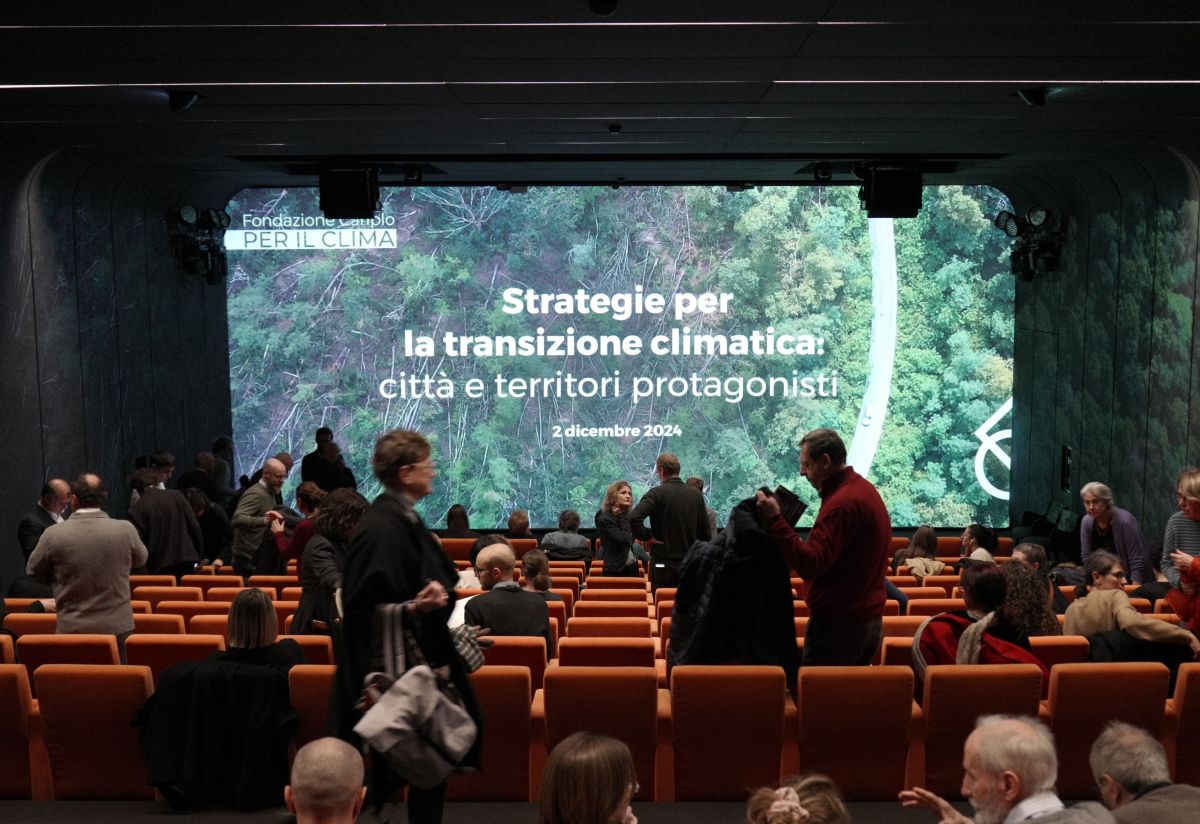MILAN (ITALPRESS) – Institutions, researchers and scientists, communicators and activists gathered in Milan for a day of study and discussion open to the public on the ongoing climate crisis. During the conference organized by Fondazione Cariplo titled “Strategies for Climate Transition: cities and territories protagonists,” which was held at the MEET Digital Culture Centre, there were expert reports, presentations of case histories and several panel discussions.The main theme of the morning was the need to put in place concrete actions by cities and territories to counter and mitigate the climate crisis, while in the afternoon the discussion focused on what are the most effective approaches to communicate the climate emergency and its consequences to those who do not yet feel it as an urgency. “The sense of comparison days like this one,” Claudia Sorlini, Vice President of Fondazione Cariplo, told Italpress, “is precisely to show how it is possible, in an international context that moves so slowly, to address environmental and climate issues with a territory that participates. “Several national and international case studies showed during the conference how climate change mitigation adaptation actions can be put in place, especially through the creation of territorial alliances. Some of these are part of the “Call for Ideas Climate Strategy” of the “F2C – Fondazione Cariplo for Climate” project, which from 2020 aims to promote climate change mitigation and adaptation through climate change mitigation interventions. “There are eight territories we are working with through the Call for Ideas,” Federico Beffa, project leader of the F2C – Fondazione Cariplo per il Clima project told Italpress. These are territories led by the cities of Mantua, Brescia, Bergamo, Monza, the municipalities of Lentate sul Seveso and Cesano Maderno, and the Comunità Montane Valli del Verbano and Valle Seriana. Each territory has declined the challenge launched by Fondazione Cariplo on the basis of its own needs and the specific impacts of climate change on each of those territories. The common thread, however, is to strengthen territorial cohesion around the fight against the climate crisis and to build a base on which to define a strategy that does not end with the Foundation’s contribution, but continues over time. “Opening the debate in the afternoon was, by video link, George Marshall, Climate Communications Specialist, who analyzed why it happens that communication about the climate crisis does not catch on: “Many people find the topic disturbing and distant, they think it is something that will affect, perhaps, someone in the future. There is also the issue of lack of trust with respect to the media, politicians and government forces in general.” To engage these people,” Marshall argued during his speech, “we need to bring topics that are close to the people. Talk about concrete issues and share their values. Among the experts who took part in the afternoon debate was also Serena Giacomin, Climatologist and Scientific Director of the Italian Climate Network: “Certainly, when we talk about the climate crisis,” Giacomin told the Italpress microphone, “we cannot help but talk about something that is worrying. The data speak clearly and the scenario of the future that awaits us is also clear. When talking about this, however, one must remember to place alongside the worrying data examples that can be proactive and can explain that indeed change is possible. It is difficult to understand how much of a difference each of us can make, however, the action of the individual remains an important action, especially when it is transformed into a collective action.”-photo Fondazione Cariplo-(ITALPRESS).

